Sally Ride the ‘Absent Heroine’?
Andrew Sullivan believes Sally Ride "had a chance to expand people's horizons and young lesbians' hope and self-esteem, and she chose not to."
Among those reacting to the news that pioneering astronaut Sally Ride was gay is Andrew Sullivan, who is not so pleased she didn’t come forward in life.
We can judge this decision in the context of Ride’s life. Her achievements as a woman and as a scientist and as an astronaut and as a brilliant, principled investigator of NASA’s screw-ups will always stand, and vastly outshine any flaws. But the truth remains: she had a chance to expand people’s horizons and young lesbians’ hope and self-esteem, and she chose not to.
She was the absent heroine.
This strikes me as remarkably uncharitable, if not downright unfair.
It’s true that Andrew his lived as an openly gay man for as long as I can remember—certainly, going well back into the days where there was real social risk in being out. That’s especially true for someone, like Sullivan, trying to make a living as a conservative writer, and a Catholic to boot. In his blogging, too, he operates with a sense of duty to write whatever it is he’s thinking without holding back, regardless of the consequences.
But it’s unreasonable to expect that everyone should live that way.
For one thing, as E.J. Graff points out, Ride’s astronaut career took place in an era when being homosexual automatically disqualified a person for a US Government security clearance. Coming out as gay, then, “would have disqualified her for NASA, of course, but it also would have limited her as a role model for most girls.”
To be sure, Ride left NASA in 1987 for academia and the private sector. This was the same year she divorced husband Steven Hawley and two years after she purportedly took Tam O’Shaughnessy as her partner.
Even in 1987, though, it would have taken remarkable courage for her to come out of the closet and become a spokesman for gay rights. Her sister Karen (“Bear”), who is also gay, explains that it just wasn’t her nature: “Sally had a very fundamental sense of privacy, it was just her nature, because we’re Norwegians, through and through.”
Would Sally Ride’s advocacy made a difference for other gays and lesbians? At the margins, if at all. And it would have come at the cost of her privacy and that of her partner.
UPDATE: Her former husband and fellow astronaut Steve Hawley issued this statement:
“Sally was a very private person who found herself a very public persona. It was a role in which she was never fully comfortable. I was privileged to be a part of her life and be in a position to support her as she became the first American woman to fly in space.
While she never enjoyed being a celebrity, she recognized that it gave her the opportunity to encourage children, particularly young girls, to reach their full potential.
Sally Ride, the astronaut and the person, allowed many young girls across the world to believe they could achieve anything if they studied and worked hard. I think she would be pleased with that legacy.”
One can be, it seems to me, courageous and inspirational while still being a private person. While coming out as gay and serving as an advocate for the gay cause might have been heroic, failure to do so doesn’t make her a coward.


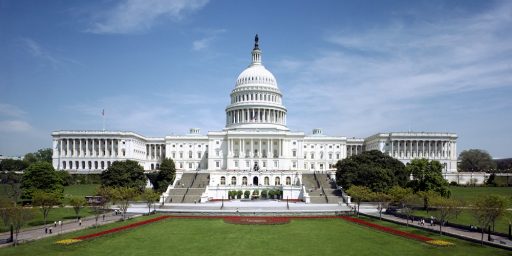
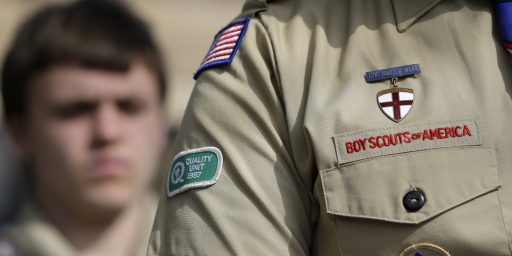
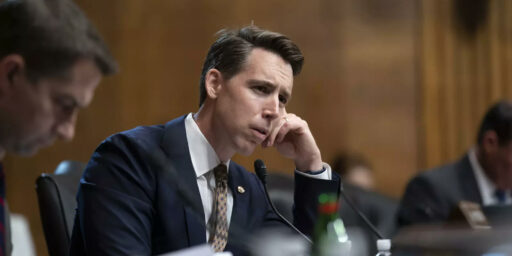
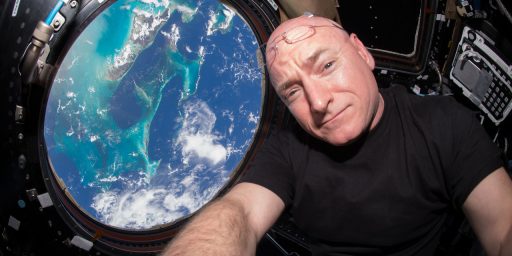
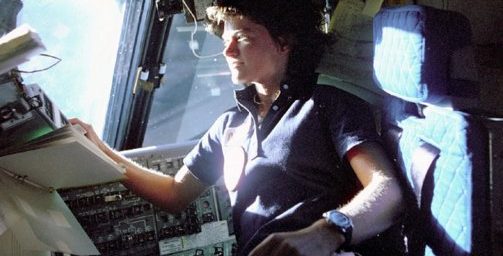
Sullivan does has a point; her completely understandable and defensible choice was not heroic.
Of course, there is no requirement that people be heroic so…
not only is it unreasonable to denigrate her for her supposed personal failings on an extremely intimate issue, but i find the way he attempts to define her strictly by her sexuality somewhat insulting. im sure that ride herself would have felt she was far more than the sum of her love life.
How was this a personal failing on Ride’s part?
Leaving aside the points James raises about why coming out of the closet in the era Ride was an astronaut would have been a career killer, does she not have a right personal privacy? If she doesn’t want her personal life discussed in public, isn’t that her choice?
Perhaps she was comfortable being a beacon for all girls rather than just gay girls? Her accomplishment was as the first woman in space, we don’t know for sure she was the first homosexual in space.
@JKB:
exactly my thoughts. well put.
I’ve been out since the late 1980s. It has had both amazingly wonderful and incredibly difficult effects on my career path and personal life. I firmly believe that being out in one’s every day is one of the more powerful, if quiet, forms of activism LGBTs can undertake. But it isn’t something that should be expected of everyone, and each person chooses who and how much and under what circumstances to be forthcoming.
I don’t blame or fault or think less of Ms. Ride for not being public while she was alive. I am certain that she had a hand in constructing her obituary, and wanted it to be known that she considered Ms. O’Shaughnessy her family, and had for a long time. And that is enough.
As much as I would encourage any LGBT person to be as out as they feel safe and comfortable being under their personal circumstances, I also have a real problem with forcing people out of the closet, or holding people to an arbitrary standard of ‘outness.’ We all have aspects of our lives that we feel comfortable disclosing and others that we do not.
The only exception – for me – is those politicians or public figures who are closeted while simulataneously working against equality for LGBTs. I have no sympathy for the Larry Craigs and Ted Haggards of the world. Ms. Ride’s choice to remain private was her own, and was benign. She does not deserve to included with Craig and Haggard.
I agree with Sullivan here.
I don’t criticize her for not coming out when she was an astronaut, obviously that would have been professional suicide. And yes, 1987 was a much more difficult time to come out. But that leaves 25 years during which the world was changing, and if she had spoken out at any point in that time, it could have had a very good effect.
Look, I agree that no one is obliged to be a hero – people have a right to a private life even if they are public figures. But it is equally true that the rest of us have the right to criticize them for the consequences of those choices. Sullivan calls her the “absent heroine” – fer chirssakes thats an incredibly mild criticism given the rhetoric of our time. It isn’t even so much a criticism as a statement of fact.
Don’t agree with JKB on much…but I do with this.
Considering the hassle females get simply for being scientists, I’m also pretty positive that if Sally Ride had “come out” any time earlier, the U.S. audience would have simply identified “female scientist == lesbian” and refused to look any further.
How many people of you posting here are female scientists? Trust me, you get enough accusations anyway of being unfeminine, man-hating, etc. We’re already gaijin in America.
And Andy? Not everything revolves around you and your genitals. Remember that.
@Doug Mataconis: Absolutely.
But… is it a “failing” to not be heroic?
@JKB: I suspect that if she had come out earlier it would have resulted in her being less influential and made it harder for her to be a role model for all girls. Sullivan is just dead wrong here.
You know, just because people are famous it doesn’t mean they should lose control over their lives.
I hate this “role model” bullsh!t anyway. First, it’s a dumb thing to tell kids. They shouldn’t be like some person they don’t really know, they should think about what matters to them, whether it’s truth, justice, wealth, humor, kindness, and live their lives in such a way as to achieve a goal. Do something don’t be something.
Second, it’s a way for society to bully talented or admirable or just lucky people. Sally Ride didn’t owe the children or women or gay people or Americans generally anything except to do her job as a NASA astronaut. That’s what we paid her to do, that’s what she owed us, and that’s all she owed us.
@Ron Beasley: Considering that we’re already seeing commentary about “well, of course that’s why Sally Ride was such a pioneer! She was a dyke!” I can understand exactly why she kept it secret so long.
Look, guys. When you can admit that all women can have brains and be deeply engrossed in science, then we’ll stop being so private about our sexual orientation, mmkay? But as long as you continue the “oh yeah, she’s interested in science, she must be gay”, we’re going to keep our mouths shut. (And what sexual orientation I am is Nobody’s Damn Business, thank you.)
Why does Sullivan think she was in some required to be a gay standard carrier? She didn’t seek to live her life publicly. Her job as an astronaut brought her a certain amount of attention, but she was no Buzz Aldrin, fighting to stay in the public mind. She was a private person, and she lived privately. To demand that she do differently is to hold her to a standard she never sought or accepted. Not everyone wants their life to be a political statement.
This will come as a surprise to most but the snippage of essential context is really unfair to Sullivan. The original article has an extensive reader comment that held Ride as a hero to the LGBT community, to which Andrew simply observed the heroism the reader saw was an absent heroism with respect to the LGBT community.
It’s not hardly as inflammatory as the terrible headline makes it out to be.
@SKI: Very nicely stated.
@JKB:
While I agree with the sentiment of this point, there’s no reasons that a Gay woman cannot be a beacon for all girls — not just gay ones. Or boys — straight or gay.
While role models often mean something additionally important to the groups they belong/are born into, there is no reason they cannot stand as examples for people of all types.
@SKI:
I disagree with the contention that Ride was not heroic, or at least not brave.
Coming out in the late 1980s would have impacted her post-astronaut career, which included writing science books for children, often with her partner. At best, it would have been a distraction, and at worst we would be hearing about “Gay Agenda… IN SPACE!” and how only the most manly women can succeed in science.
Between her desire for privacy, and her desire to work as an educator without distraction, it becomes a reasonable, understandable decision to make. And she was married to some guy not long before that, so she may not have even known how she identified herself (lesbian, bisexual, going through a phase that would last 27 years…)
In 2012, people wouldn’t have cared that much (although had she gone married her partner, all bets would be off), but decisions become habits. I wish she had the opportunity to marry her partner without causing a storm of controversy and losing her privacy — I have no idea if she would have wanted to, but I wish she had the opportunity.
@Doug Mataconis:
1. Brave does not equal heroic.
2. In this specific context (being a hero to the LGBT community), Ride wasn’t a hero. That isn’t a slight, just an acknowledgement of reality.
Good post, James.
@michael reynolds:
What Michael said. I don’t see how Sally Ride’s sexuality was anyone’s business but her own, and that of any partners she had.
She was a hero for what she accomplished. Her sexuality is irrelevant to that.
@george: You read the brain-dead questions that Sally Ride had to answer before she flew in space the first time and you really want to take the entire population of reporters and start measuring for coffins.
I especially liked when she ended up doing some repairs on the Shuttle involving something akin to a large needle and when some reporter in wide-eyed wonderment asked her whether she had learned her repair skills by sewing (obviously envisioning a gooey article “how Sally Ride used the skills she learned as a young girl in 4H to repair the Shuttle!”) Sally just looked at him and said, totally deadpan: “I learned it in surgery.”
That the end of that meme.
@SKI:
Did Sally Ride sign up to be a hero to the LGBT community? Not as far as I know. She had a right to live her life as she saw fit, including keeping the personal aspects of it private if she chose to. Sullivan’s posthumous judgment upon her is pathetic.
@Doug Mataconis:
As I pointed out in the previous article, Ride’s sister is now describing her as an advocate for the GLBT community. So while I think it was perfectly fine for here not to want to come out earlier, neither should her family be trying to posthumously trying to make her into a hero for the cause.
@CB: When did she perform surgery? She was a physicist, not a physician.
@Doug Mataconis:
Huh? How do you figure that? In a very long article about her life and the issues involved, he makes one comment about her – the one James quoted. One in which he recognizes all her achievements and merely states the fact that she chose not to be a leader for gays. Simple fact.
And he calls her a heroine, albeit one who chose to be absent from the fray. He never even says she was “wrong” to do that.
How on earth is that even much of a criticism, let alone something “pathetic”?
I think you and many other commenters here are reacting to some phantom argument that Sullivan never made and are being completely unfair.
@Tano:
“the rest of us have the right to criticize them for the consequences of those choices”
Judge not, lest ye be judged by in-laws.
As Stormy and rubberpedals have already said, the context of what Sullivan said was completely left out of the except and is being missed by all of you. There have been numerous quotes and articles that have come out saying that Ride is some sort of advocate or hero for LGBT. All Sullivan is doing is questioning that line of thinking, because she wasn’t an advocate or even acknowledged in that community at all until after her death.
He’s saying that the LGBT community should pump the brakes a bit before canonizing her, because her obituary is the first time she’s ever even been linked to that community.
I think that leaving out that context is a bit unfair. This wasn’t a gay-agenda hit piece on a recently dead person like James made it seem.
@Tano:
If the argument is that Sally Ride was a hero in general, but not specifically a LGBT hero, then I think its hard to argue against it.
The way it was phrased above suggested that she wasn’t a hero at all, and I think that’s what many, myself included, reacted against.
She was a hero, and a roll model for many. However, it doesn’t seem like she was championing the LGBT cause, and if her family is suggesting she was a hero in that cause, then I think they’re mistaken.
You can do great things in one cause, without doing so in other causes. In fact, its likely impossible to do great things in all worthwhile causes.
@Ben:
understood, and point taken. what gets me, though, is sullivan essentially accusing the NYT of latent homophobia for not mentioning specifically that she was gay. as is usually the case, he takes an agreeable point and takes it all the way out to left field.
She has served her day, and better than most. Ride, Sally, Ride
I agree with Sullivan. She had the opportunity to contribute to the trend of social change which has led to greater opportunity for legal equality, and she failed to do so.
Is it wrong that I don’t necessarily think of her as a hero or a coward, but just a person? As an astronaut, part of her professional life was highly public, and it belonged to Americans all around. But that does not give the American public a claim on her private life.
Coming out is a personal choice that can only be made by the person in question. While I would have loved it if she had been out I can’t for a moment deride her for choosing not to espeically in the 80’s when doing so would have been carrer suicide.
She was then and always will be a pioneering hero in my book. That fact that we now know she was gay just makes her more of a hero to me.
I need to start sending Sullivan memos on how he should live his life and what he owes me…